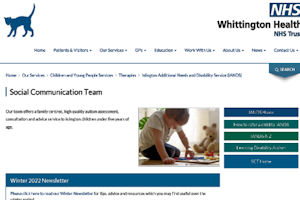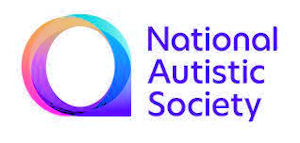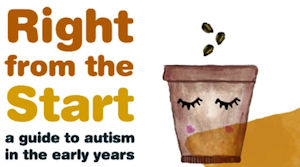Where can I find information about how to support my child?

We understand that you won’t know whether your child is autistic until they have had their assessment, however, if you are facing difficulties in your daily lives, such as with communication, play, daily routines, eating, sleep, toileting or behaviour, then the strategies suggested for autistic children are very likely to be helpful, whether or not your child receives a diagnosis of autism. You don’t need a diagnosis to access support or to begin to use strategies that will benefit your child. Many autistic children really need and depend on the kinds of strategies we recommended, but they will also often be very beneficial for non-autistic children facing similar challenges and are certainly unlikely to do any harm. Support given at this stage will not affect the outcome of the assessment. By trying out these strategies while waiting for your assessment you will not only be helping your child but also, by observing how your child responds, you may also gather useful information that could help inform the assessment.
There is a lot of information on the Internet both about autism, and how to support children’s development. This can sometimes feel overwhelming, and we are aware that, depending on the source, the information can sometimes be inaccurate or misleading and not based on good research. So, we have identified some key sites to visit that we hope you will find useful.
1. Our own Social Communication Team website
 You will find a lot of advice for supporting autistic children on this Social Communication Team website. We suggest you take the time to look through our advice pages, resources and videos to see if they may be helpful for your child.
You will find a lot of advice for supporting autistic children on this Social Communication Team website. We suggest you take the time to look through our advice pages, resources and videos to see if they may be helpful for your child.
2. The National Autistic Society website
 The National Autistic Society is one of the UKs leading charities for autistic individuals and their families. This site provides detailed up-to-date information, which can help you better understand autism, and how it can affect individuals in different ways.
The National Autistic Society is one of the UKs leading charities for autistic individuals and their families. This site provides detailed up-to-date information, which can help you better understand autism, and how it can affect individuals in different ways.
3. The Ambitious About Autism website
 This is another charity supporting autistic individuals and their families. The site provides a lot of general information about autism. We also recommend you access the “Right from the Start” parent toolkit, produced by the charity. This provides information about how to support your child during their early years and in the lead up to their assessment. It contains practical tips, and checklists for you to write down key information about your child’s development; recording this type of information will be very useful for their assessment, helping us to better understand your child and the progress they have made.
This is another charity supporting autistic individuals and their families. The site provides a lot of general information about autism. We also recommend you access the “Right from the Start” parent toolkit, produced by the charity. This provides information about how to support your child during their early years and in the lead up to their assessment. It contains practical tips, and checklists for you to write down key information about your child’s development; recording this type of information will be very useful for their assessment, helping us to better understand your child and the progress they have made.
In addition to these sites which are specific to autism, we would also recommend looking at the Tiny Happy People website which provides general advice and tips about how to support language and communication development in all children, offering videos with tips from a range of healthcare professionals. You can choose appropriate activities according to your child’s age.
Last updated20 Jan 2025

